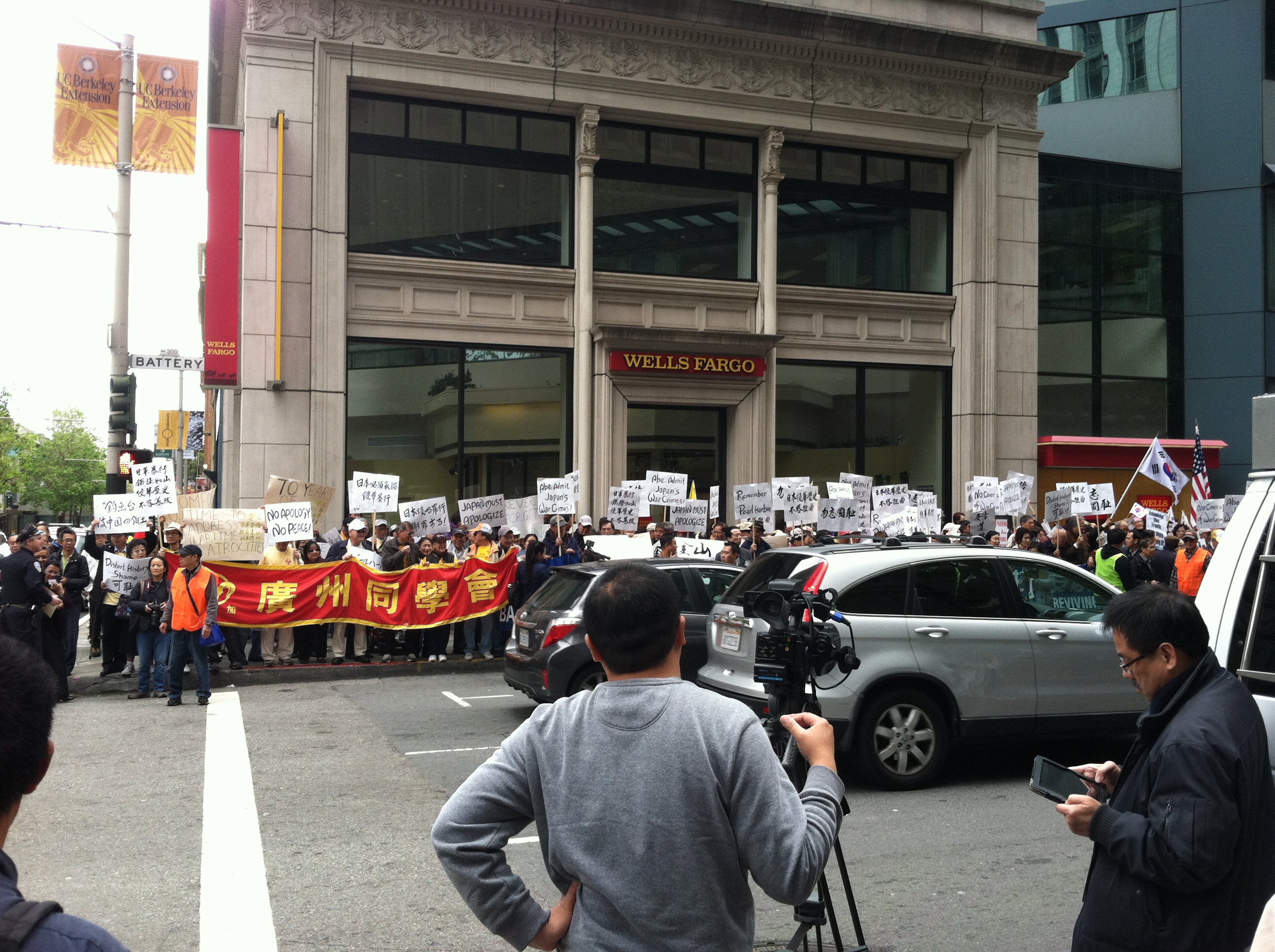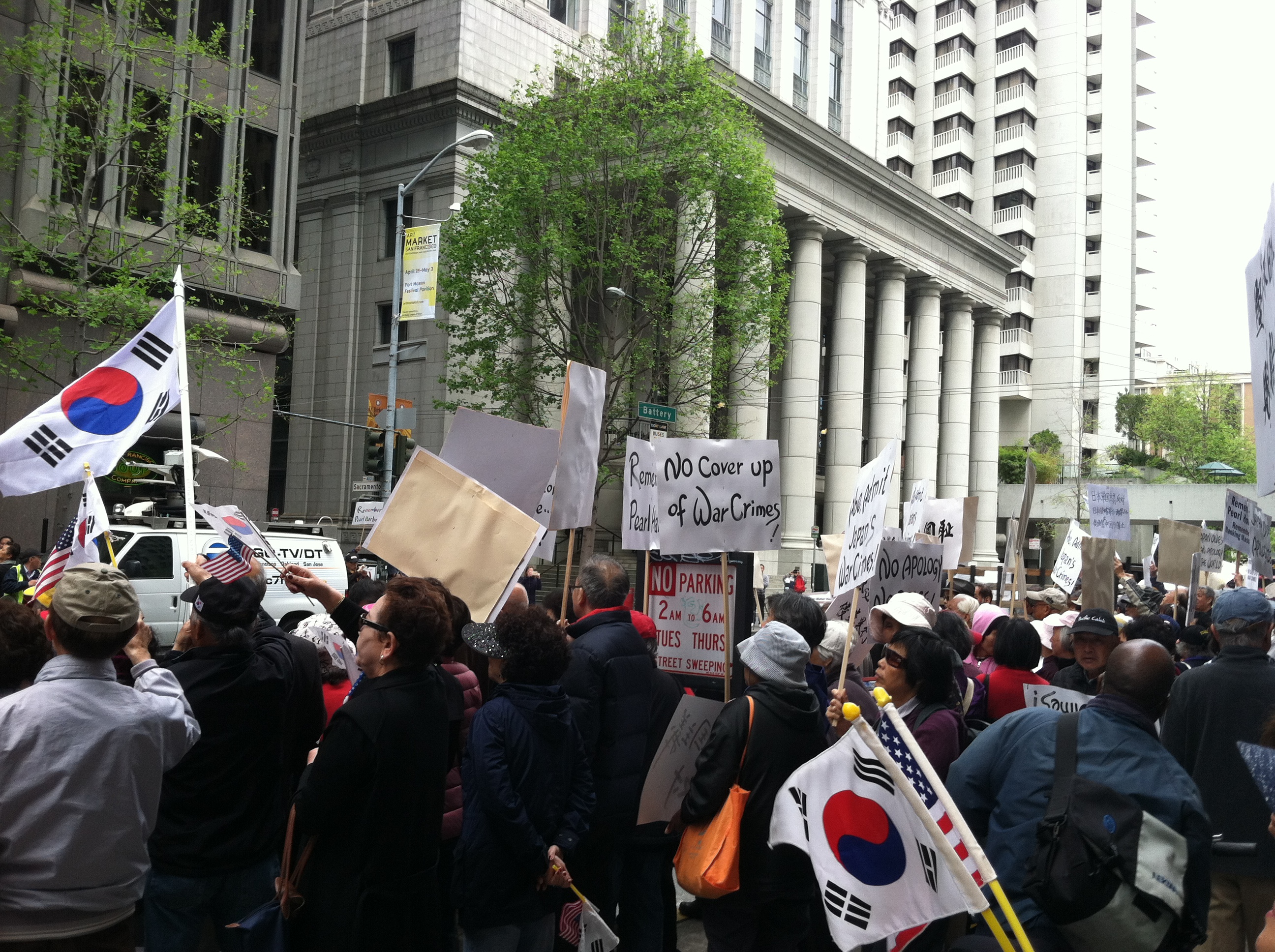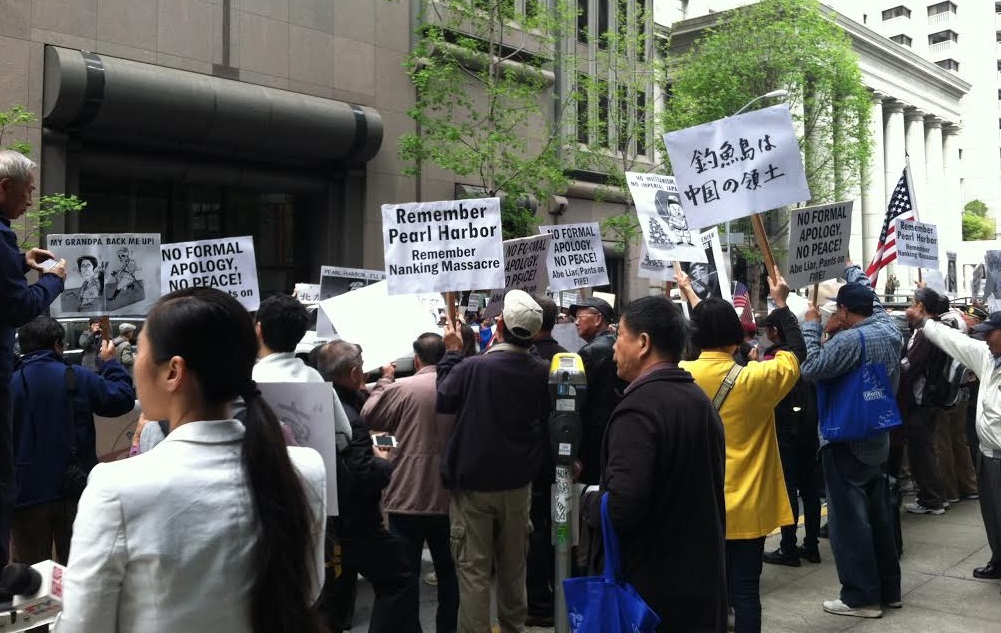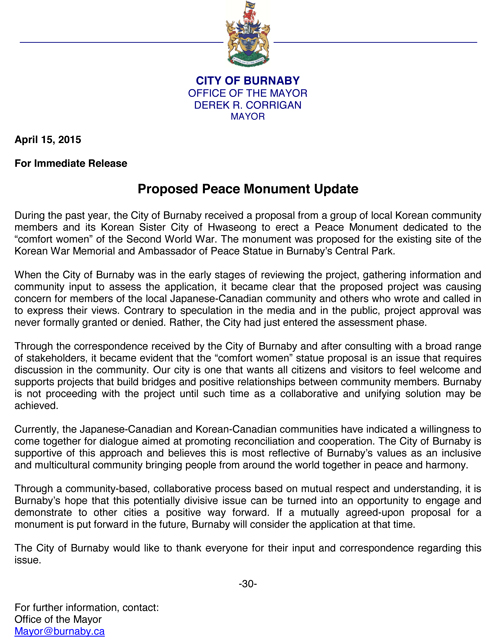安倍首相が2015年4月29日に米国の上院・下院合同会議の中で講演します。
日本人が英語で発信するブログ Japanese Speak Out より、安倍首相を応援するWilliam Matsushima氏の投稿をご紹介します。
********************************************************************
I wish Prime Minister Abe good luck in delivering a speech at a joint meeting of the US Senate and House of Representatives on April 29.
http://jpnso.blogspot.jp/2015/04/i-wish-prime-minister-abe-good-luck-in.html
Prime Minister ABE Shinzo will deliver a speech at a joint meeting of the U.S. Senate and House of Representatives on April 29, 2015.
This will be an epoch making event because no Japanese leader had done it. Seventy years will pass on August 15, 2015 since Japan officially surrendered to the US Forces. Until now all the Japanese leaders have been too bashful to request the US government to do it.
I sincerely hope that Premier Abe delivers a fine speech to have as many American citizens as possible understand Japan’s true figures, which were damaged and distorted ruthlessly by the propaganda produced by Kuomintang, the Chinese Communist Party, South Korea and not to mention communist Japanese/American politicians influenced by the ghost of Stalin.
On this occasion, visiting Prof. FUJIOKA Nobukatsu of Takushoku University contributed an article to the Yukan Fuji, (the Evening Fuji) on April 23, 2015 on an interview article between Prime Minister Abe and David Ignatius, Post Opinions Staff of the Washington Post, on March 27, 2015.
Prof. Fujioka in his article pointed out a possible misunderstanding which may arise from the words jinshin baibai on Korean comfort women during the past war time spoken by Prime Minister Abe to David Ignatius. The words were translated into “human trafficking”.
According to the definition of online Merriam Webster Dictionary on Human Trafficking as was quoted by Prof. Fujioka, we can see the following explanation
==================================
http://www.merriam-webster.com/dictionary/human%20trafficking
noun
Definition of HUMAN TRAFFICKING
: organized criminal activity in which human beings are treated as possessions to be controlled and exploited (as by being forced into prostitution or involuntary labor)
Let’s see another explanation on Human Trafficking on Wikipedia Dictionary as follows.
http://en.wikipedia.org/wiki/Human_trafficking
Human trafficking is the trade of humans, most commonly for the purpose of sexual slavery, forced labor or commercial sexual exploitation for the trafficker or others. This may encompass providing a spouse in the context of forced marriage, or the extraction of organs or tissues, including for surrogacy and ova removal. Human trafficking can occur within a country or trans-nationally. Human trafficking is a crime against the person because of the violation of the victim’s rights of movement through coercion and because of their commercial exploitation. Human trafficking is the trade in people, and does not necessarily involve the movement of the person from one place to another.
===================================
The Japanese government has translated “human trafficking” to “jinshin torihiki” meaning “human trading” without much knowledge on slave trafficking which was to abduct Africans and sell them as merchandise to white Americans in the US as labor sources.
In Japanese history, we have never had slaves unlike the US, which treated Africans brutally as if they had been merchandise being deprived of human dignity through human trafficking.
Since many Japanese don’t clearly understand the meaning of human trafficking, some Japanese people confuse the term with nenki boko, which can mean “indentured labor”. This habit was practiced often before World War II in Japan. Nenki boko meant that people worked for their employers on a contract basis.
In the case of comfort women, the parents of their daughters entered into an agreement with prostitution brokers, who advanced a chunk of money to the parents, and their daughters had to work as prostitutes until they earned the advanced money paid to their parents. Afterwards, they were set free.
Such a broker was called zegen in Japanese. Korea was part of Japan during the war time, and nenki boko was also practiced in Korea. This is what Prof. Fujioka explained in his article contributed to the Yukan Fuji.
Premier Abe was born in 1954, nine years after World War II ended. Many Japanese who were born after the war ended are not familiar with this old habit held by Japanese, and thus many of them don’t understand nenki boko either. In addition to nonexistence of slavery in Japanese history, it could happen that some Japanese confuse nenki boko with slavery.
Premier Abe is one of Japanese people born after World War II ended, so I am afraid that he might not have understood both terms well. However, he can’t be blamed because I had also been ignorant of the term nenki boko until Prof. Fujioka taught me its meaning at a Japanese izakaya (pub) in Tokyo where he, some other Japanese people and I got together, and were just chatting on political issues on modern Japanese history. Prof. Fujioka was the oldest among us, and as a renowned historian, he explained to all of the members at the Izakaya about the difference between nenki boko and human trafficking.
There is a possibility that Premier Abe’s staff members didn’t understand nenki boko precisely. In our discussion at the Izakaya, another member mentioned that one of Abe’s staff members might have suggested to Premier Abe to say human trafficking to please David Ignatius, because the words were quoted in Resolution 121 of July 30, 2007 in the House of Representative, the United States of America, in which we can see the following words.
——————————————————
Whereas the comfort women system of forced military prostitution by the Government of Japan, considered unprecedented in its cruelty and magnitude, included gang rape, forced abortions, humiliation, and sexual violence resulting in mutilation, death, or eventual suicide in one of the largest cases of human trafficking in the 20th century
——————————————————
According to Prof. Fujioka, this resolution had strong influence on Canada, the Netherlands, the European Union, South Korea, etc, thereby having motivated anti-Japan forces to build comfort women statues in the US. In fact this resolution authored by Congressman Michael Honda included incorrect information based on propaganda.
Prof. Fujioka in his contribution to the Yukan Fuji advised Premier Abe not to use the words “human trafficking” in relation to the comfort women issue even though Korean zegen was involved in recruiting comfort women because zegen didn’t abduct Korean women, and never sold them as merchandise to brothels. Zegen who mistreated comfort women, whether they were Koreans or Japanese, was punished as a criminal by the Japanese authorities. When some Korean or Japanese military men mistreated comfort women, they were also punished by the Military authorities. Comfort women were recruited in a nenki boko job system, which was entirely different from human trafficking practiced in the US a long time ago.
I sincerely hope that Premier Abe does not quote the words “human trafficking” in his speech at a joint meeting of the U.S. Senate and House of Representatives taking place on April 29, 2015.
Premier Abe, you are the hope for all the Japanese people. I wish you good luck in delivering your speech as the leader of Japan to American citizens to commemorate this historically important moment in the US, and also to further strengthen the close tie between the United States of America and Japan.
********************************************************************




